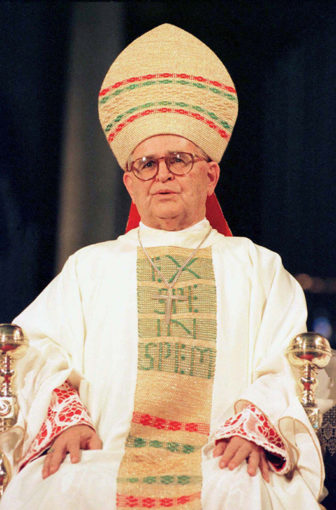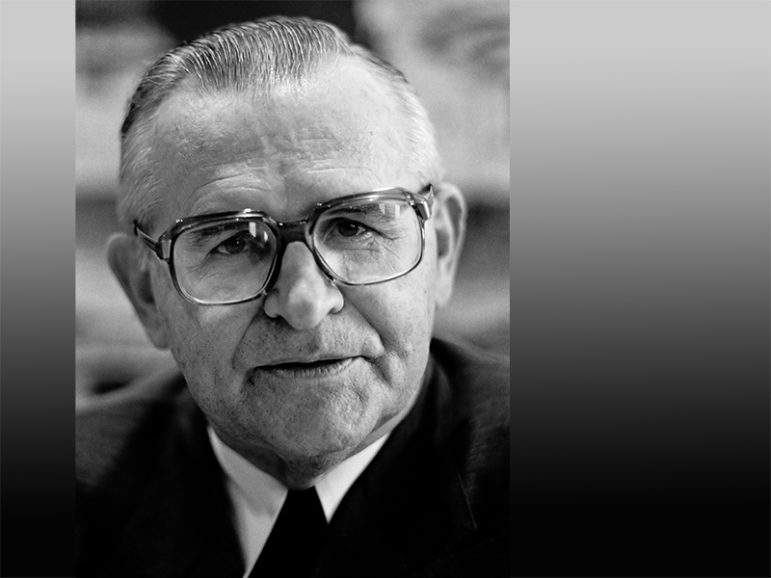RIO DE JANEIRO (RNS) Brazilian Cardinal Paulo Evaristo Arns, one of the most important figures in modern Brazil, died Wednesday (Dec. 14) in São Paulo. He was 95.
Known as Dom Paulo, he was appointed bishop in 1966 and served as archbishop of the São Paulo Archdiocese from 1970 to 1998. But he was better known as the “people’s bishop” and embodied the progressive church movement in South America.
[ad number=“1”]
He fought for freedom, stood by workers, inspired their struggle and ministered to the dispossessed and downtrodden.
During Brazil’s military dictatorship (1964-1985) he confronted the regime from his pulpit at Sé Cathedral, denouncing the arrest, torture and death of political prisoners.
His uncompromising defense of human rights earned him the nickname “cardinal of the resistance.”

Brazilian Cardinal Paulo Evaristo Arns presides over a Mass at Se Cathedral in São Paulo, Brazil in 1998. Photo courtesy of Reuters/Luludi
In 1972 he created the Justice and Peace Commission of São Paulo and in 1983 he helped establish Pastoral da Criança, a social action organization promoting children’s development.
Dom Paulo’s social justice ministry was not limited to national issues. He also denounced violations and abuses under the Argentine dictatorship (1976 to 1983).
He received, the United Nations’ humanitarian Nansen Refugee Award, the Niwano Peace Prize for intereligious cooperation and dozens of city and state awards.
A Franciscan, Dom Paulo was alternately called “bishop of the oppressed” and “good shepherd,” and is reported to have said he would like to be remembered as a “friend of the people.”
Brazil’s President Michel Temer said: “Brazil has lost an advocate of democracy.”
Born in 1921 in Forquilhinha, Santa Catarina, Dom Paulo was the fifth of 13 children born to German immigrants. He joined the Franciscan order in 1943 and began his work as a religious leader in Petropolis, 42 miles northeast of Rio de Janeiro.
[ad number=“2”]
Throughout his career, he worked as a journalist, teacher and writer and published 57 books.
An avid soccer fan he was a lifelong supporter of the São Paulo-based Corinthians Football club and wrote a tribute book, “Thank God for Corinthians.”
“The dynamic ministry of Cardinal Arns partly led me to become a specialist in the Latin American Church,” said Andrew Chesnut, professor of religious studies at Virginia Commonwealth University. “He seemed to be the very embodiment of what building the Kingdom of Heaven here on earth might look like.”
Chesnut said that Dom Paulo’s ministry to the poor appeared to fade with the rise of conservative Pentecostalism and charismatic Catholicism over the past couple of decades.
[ad number=“3”]
But he added: “Now that it’s been resurrected from the dead by Pope Francis, the legacy of ‘the people’s bishop’ lives on.”
Chesnut said he wouldn’t be surprised if the cardinal gets fast-tracked for canonization as a saint.
Dom Paulo’s funeral is expected to take place in the Sé Cathedral later this week. He will be laid to rest in the cathedral’s crypt.
(Janet Tappin Coelho is an RNS correspondent based in Rio de Janeiro)





